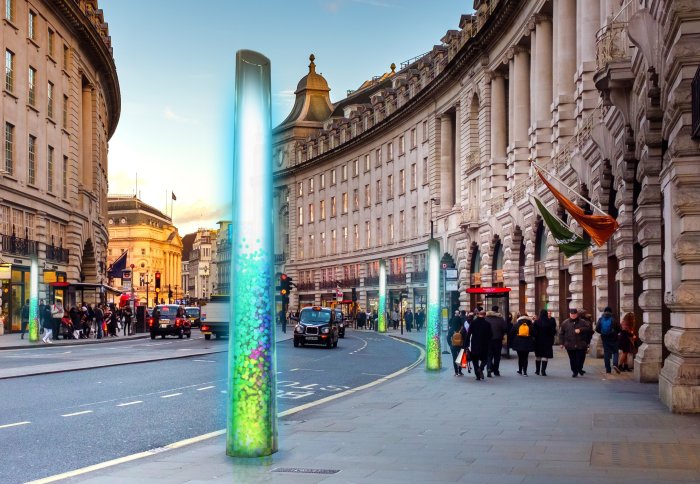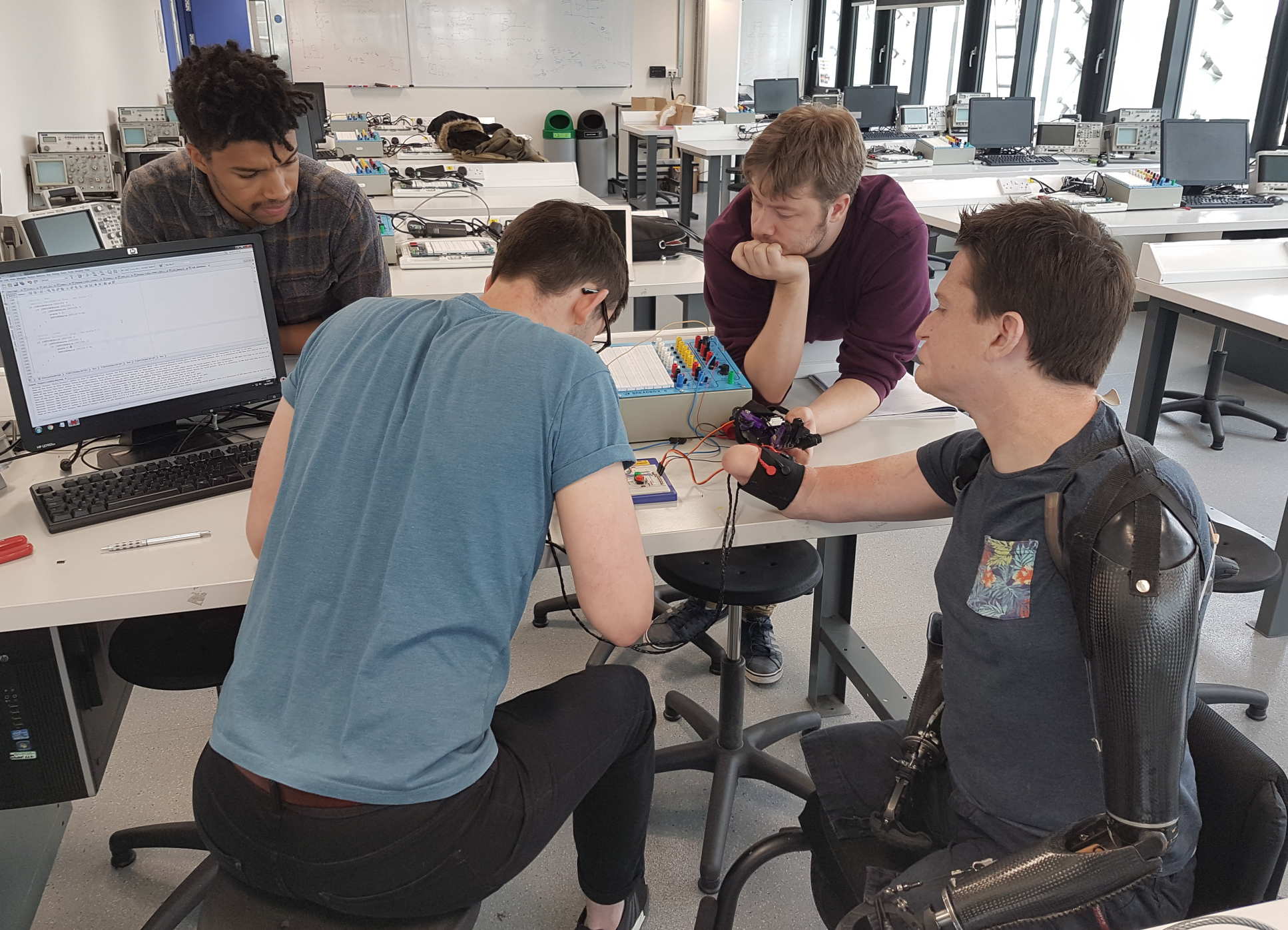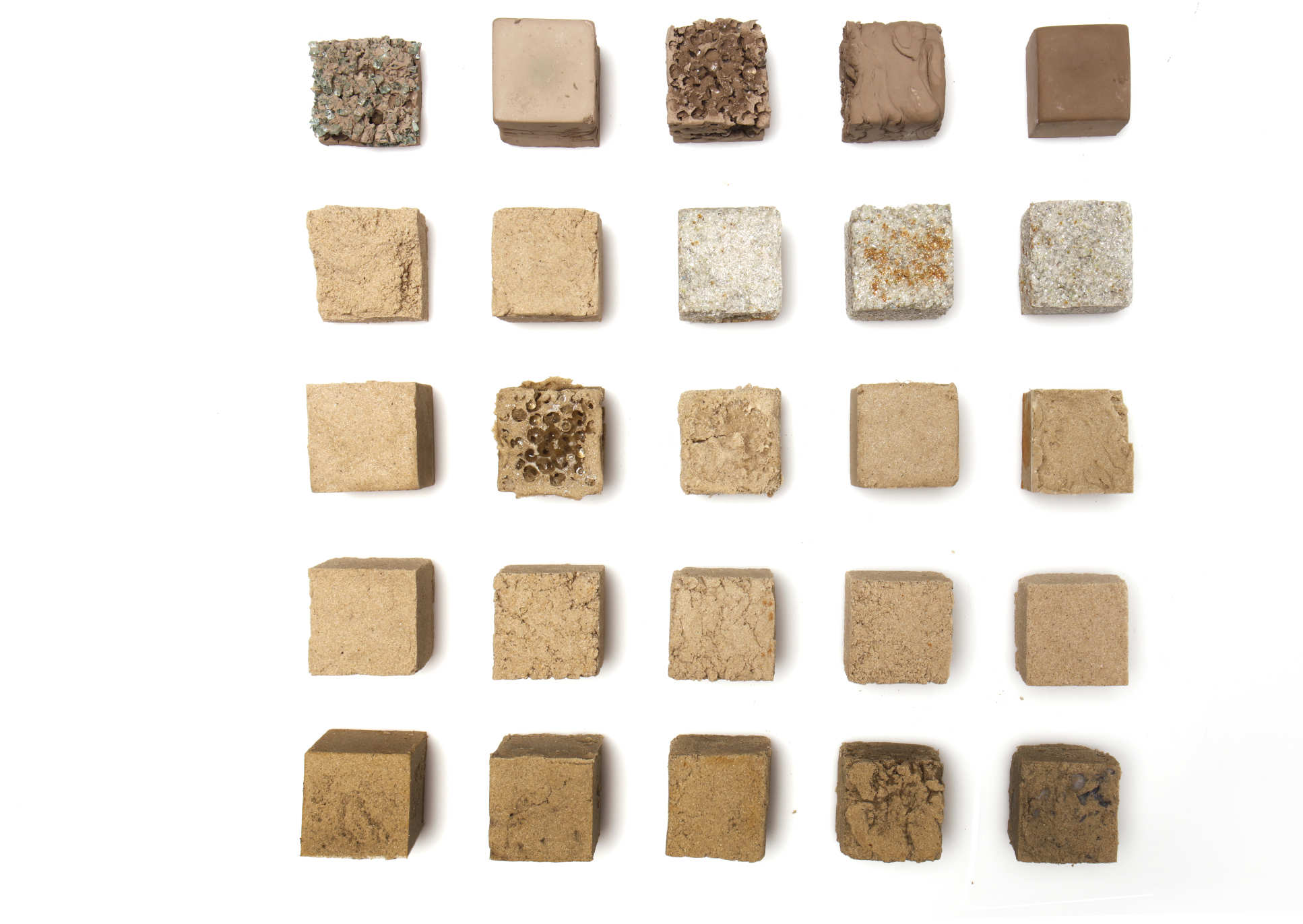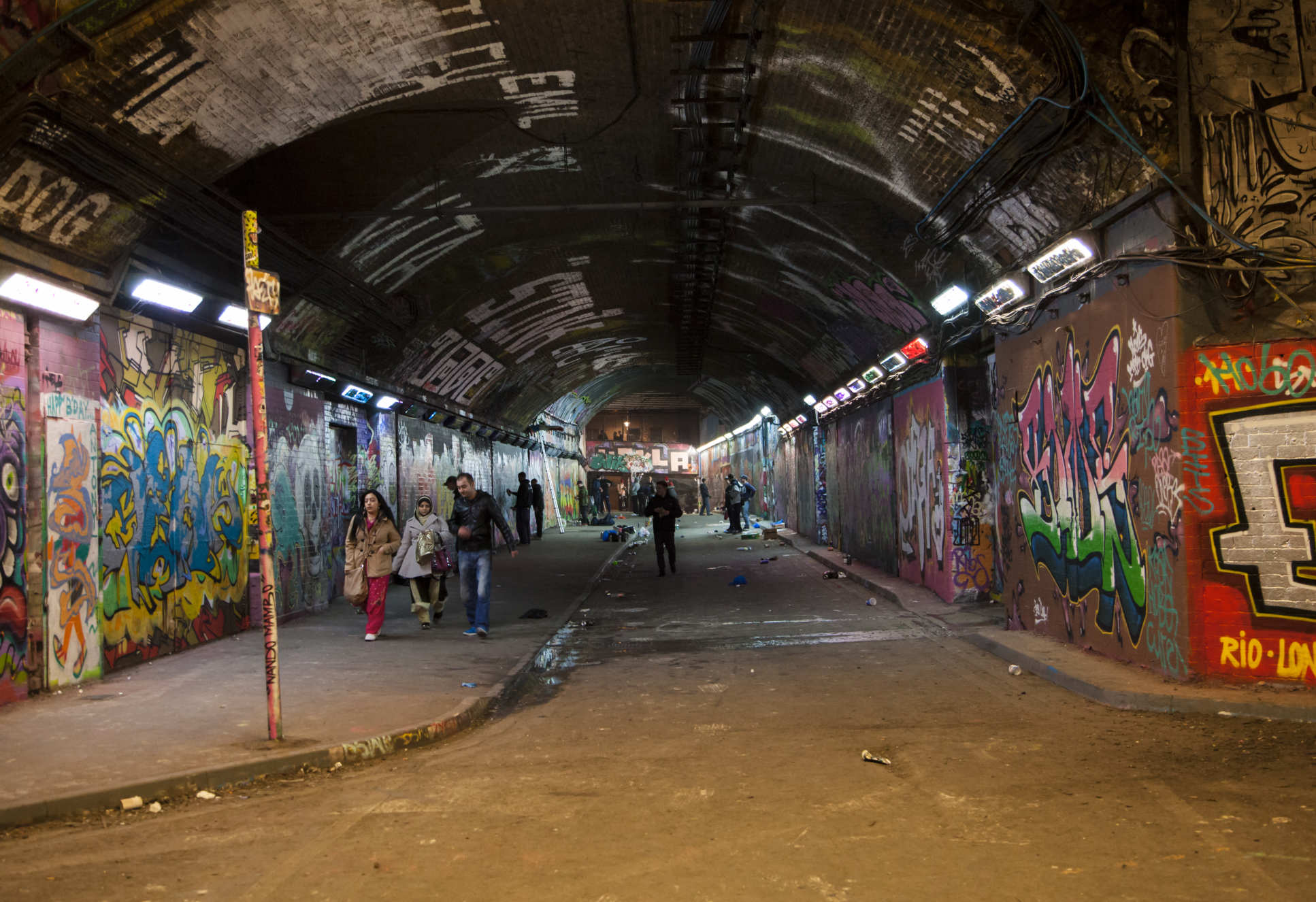Could these seven student inventions be the next big thing?

How Pluvo could look on London's Regent Street
Some of Imperial’s most exciting new startups are gearing up for the final of the College’s flagship competition for budding entrepreneurs.
The Venture Catalyst Challenge (VCC), which is powered by digital venture builder Blenheim Chalcot, supports deep science and early-stage tech startups founded by Imperial students

Over the past six weeks, participants have had access to workshops, professional business coaching, and 1-2-1 mentoring sessions with industry leaders to help them develop their idea and test its commercial viability.
The Challenge will reach a dramatic climax on Thursday 22 March, when finalists will battle it out for funding of up to £40k to support their businesses.
Previous participants have gone on to see great success. Audio detection startup Sonalytic (VCC 2016) was bought by music streaming giant Spotify last year, and virtual reality start-up Surreal Vision (VCC 2014), was acquired by Facebook for Oculus in 2015.
The final takes place during Enterprise Week 2018, a week-long showcase of startups, entrepreneurs, and innovators running from 19-23 March, organised by Imperial Enterprise Lab.
Rethinking prosthesis
Mitt Prosthesis, founded by undergraduate Mechanical Engineering students Joshua Chidwick and Nathan MacAbuag, is developing comfortable, affordable, plug-and-play upper limb prosthetic devices.
The team say that 35% of people with upper limb loss would rather use no prosthesis at all than those that are currently available. The team worked with quadruple amputee Alex Lewis as they developed Mitt, which has a flexible socket that automatically adapts to the user’s size, along with a selection of quickly interchangeable, highly functional prosthetic tools.

Data marketplace
The DX network, founded by alumnus Jeremiah Smith and postgraduate Computing student Nico Smuts, is using the Ethereum blockchain to create the world’s first data open market. It allows data to be bought and sold in real-time in a standardised, efficient way. The team compares it to the way that shares are traded on the stock market.
Their first data marketplace will be for tech industry data - information about companies, products, investors, investments, news and events - but the team say that the underlying technology can be used to power data marketplaces in any industry.

Targeted drug-delivery
Founders Kuin Tian Pang (Bioengineering), Emily Bennett (Life Sciences), Xiaoyu Chen (Business School) and Sam Worrapong Kit-Anan (Materials) are developing a way of delivering clot-busting drugs safely and exactly where they are needed following a stroke or heart attack.
Clot-busting drugs, also known as thrombolytic therapy, are a type of medication given to patients to clear a blocked artery. They must be administered to patients quickly, but they carry the risk of causing fatal internal bleeding. The team say that only 4% of people receive the drug because of this.
They are developing technology that uses nanocontainers to deliver the drugs specifically to the blocked region of an artery, reducing the risk of complications and allowing more patients to be treated within the critical time window.

Solving the sand crisis
Finite, founded by Carolyn Tam, Hamza Oza, Matteo Maccario, and Saki Maruyama (all Dyson School of Design Engineering, jointly with the Royal College of Art), is developing a material made from desert sand which has similar structural properties to concrete but with less than half the carbon footprint.
Beach, river, and quarry sand resources – used in many products and industries, especially construction – are diminishing due to heavy use.
Desert sand is by contrast historically of little use, as its grains are too smooth and fine to bind together for building materials. Finite opens new opportunities to make use of desert sand and other abundant fine powders in construction.
Unlike concrete, which must either be down-cycled or sent to landfill at the end of its life, Finite can be remoulded and reused over multiple lifecycles or left to safely biodegrade.

Lifesaving tests
Founded by Ana Luisa Neves and Andrea Rodriguez-Martinez from the Department of Surgery & Cancer, Momoby has developed an innovative finger prick test to perform prenatal testing. It allows for the early identification of diseases with known impact on pregnancy. Importantly, it can give results in real-time without the need for laboratory testing.
Almost 300,000 women die of preventable causes related to pregnancy and childbirth every year, and 99% of all maternal deaths occur in developing countries. Prenatal testing can be a challenge in isolated areas, as samples need to be transported over long distances in sub-optimal conditions for testing in labs – causing delays and compromising the accuracy of the results. Some women don’t have access to testing at all.
Momoby would allow for a timely treatment and better health outcomes for both mother and baby in these isolated regions.
In 2017 Ana Luisa was a runner up in WE Innovate, the College’s entrepreneurship competition for women.

Graffiti gone
Liliane Capril-Carniere Auwerter (Civil and Environmental Engineering) and Alejandro Ortega Ancel (Aeronautics) have founded a startup called Tagless, who are creating a cost-effective protective coating against graffiti & tagging.
The team say that currently organisations must use expensive chemicals to remove graffiti from buildings and other surfaces. When they are protected by Tagless, removing the troublesome paint involves nothing more than water and a bit of light scrubbing.
Current products on the market are much more expensive, and damage the paint or surface underneath when removed, so Tagless offers considerable advantages, they say. In 2017 Tagless won the Cross CDT Dragons Den competition.

Tackling air-pollution
Pluvo, created by Lewis Hornby, Claudia Arnold and Nick Hooton (all Dyson School of Design Engineering, jointly with the Royal College of Art), have designed futuristic roadside structures to tackle air pollution while acting as an innovative advertising medium.
The system, which resembles a large glass chimney, uses “wet-scrubbing” technology which cleans the air in a similar way to rain. The structures draw surrounding air into them, where water droplets attract, collide and combine with pollutants to remove them from the atmosphere.
The team’s vision is for Pluvo to be used in high-footfall pollution hotspots – such as Oxford Street. Holograms could be projected onto the mist to create an attractive visual display, and the team aims to make the system cost-neutral by using this feature as a new advertising medium to brands.
You can find Pluvo at Imperial Festival on 28-29 April in the Greener Futures Zone.

- Image credit (blockchain): whiteMocca/Shutterstock.com
- Image credit (brain scans): Puwadol Jaturawutthichai/Shutterstock.com
- Image credit: (pregnancy clinic): Travel Stock/Shutterstock.com
- Image credit: (graffiti): Shutterstock.com
Article text (excluding photos or graphics) © Imperial College London.
Photos and graphics subject to third party copyright used with permission or © Imperial College London.
Reporter
Deborah Evanson
Communications Division